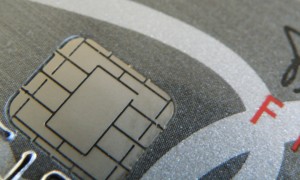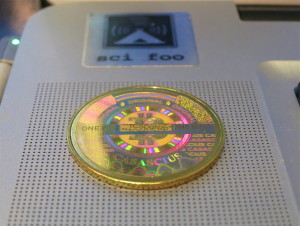August 30th, 2016 by Elma Jane
NTC’S 20th Anniversary! October 7th, Friday at our sales office come join us.
As part of our celebration we have Lincoln Kokoram to do a brief Sales Training on How to Overcome Telephone Objections. 11am-3pm.
In addition, Mark Fravel, Founder/President of National Transaction; will have his FYI remarks from what he learned for over 20 years in the Payment Industry, while building a strong relationship with his partners’ and exceeded excellence in his company. 3pm-5pm
Cocktail Dinner will follow!
Come celebrate with us RSVP needed before September 30th.
Please contact or email Elaine Zamora at 888-996-2273 Extension 1111 elaine@nationaltransaction.com
Check our website: www.nationaltransaction.com/ www.ziebest.com/national/
Posted in Best Practices for Merchants, nationaltransaction.com Tagged with: payment, payment industry, transaction
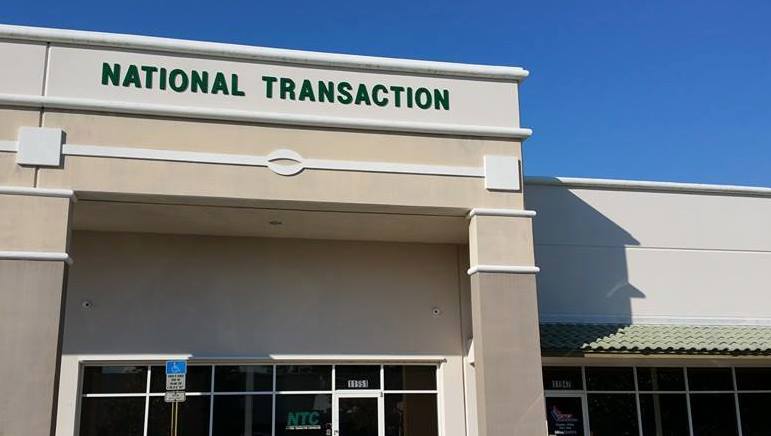
August 22nd, 2016 by Elma Jane
National Transaction 20th Anniversary
Join National Transaction at our Sales Office, in celebration of our 20th Anniversary. October 7th Friday, from 11am until 3pm.
As part of our celebration we have Lincoln Kokoram to do a brief Sales Training on How to Overcome Telephone Objections.
Lincoln Kokoram has been conducting seminars, workshops and platform speaking for the past 32 years. And having trained in over 35 countries.
In addition, Mark Fravel, founder/President of National Transaction; will have his FYI remarks from what he learned for over 20 years in the payment industry while building a strong relationship with his partners’ and exceeded excellence in his company.
Come celebrate with us and attend the training! RSVP needed before September 30th.
Call us at 888-996-2273 or go to www.nationaltransaction.com for more information.
Posted in Best Practices for Merchants Tagged with: payment, payment industry, transaction
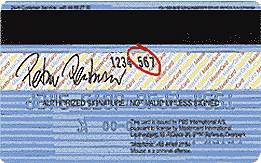
March 17th, 2016 by Elma Jane
A bank in Mexico is the first in the world to publicly experiment with this technology. With their mobile wallet application, cardholders are able to use dynamic CVC/CVV codes, which are generated every twenty minutes.
If somebody is using credit card information stolen from a data intrusion and the merchant accepting payment online asks for the CVV, it likely would have changed by that time, they would enter the wrong CVV and the transaction would be declined.
Cards with CVV code display that randomly changes will ensure that users making orders online are who they say they are. Many e-Commerce sites already ask shoppers for the CVV code during online transactions or over the phone.
The technology is an intuitive solution, but costly to issuers. Cards with displays that enable a dynamic CVV code are 10 times more expensive than chip cards.
As mobile banking, e-commerce, and m-commerce is growing, something had to change sooner or later in the online payment industry.
Posted in Best Practices for Merchants, Credit Card Security, e-commerce & m-commerce Tagged with: bank, cardholders, cards, credit card, data, e-commerce, m-commerce, merchant, mobile, online, payment, payment industry, transaction, wallet

January 19th, 2016 by Elma Jane
2015 was a major period of growth for the online and mobile payment industry. Close to 60 million Americans used mobile payments on a consistent basis, representing close to 18 percent of the population. However, around 52 percent of Americans are aware of mobile payments and how to use them.
Because of both the wide awareness and accessibility of mobile payments, analysts expect consistent mobile payment use to double this year. Millennials and high-income spenders tended to adopt the technology more quickly, at 23 percent and 38 percent consistent usage respectively.
Even more intriguing than the wide-spread use of mobile payments is how large the market grew. In 2015, $8.71 billion passed through online payment services providers. Even more intriguing is the prediction that this market will more than triple to $27.05 billion by the end of this year.
Posted in Best Practices for Merchants Tagged with: mobile payment, online, online payment, payment, payment industry, payment services, provider's, services providers
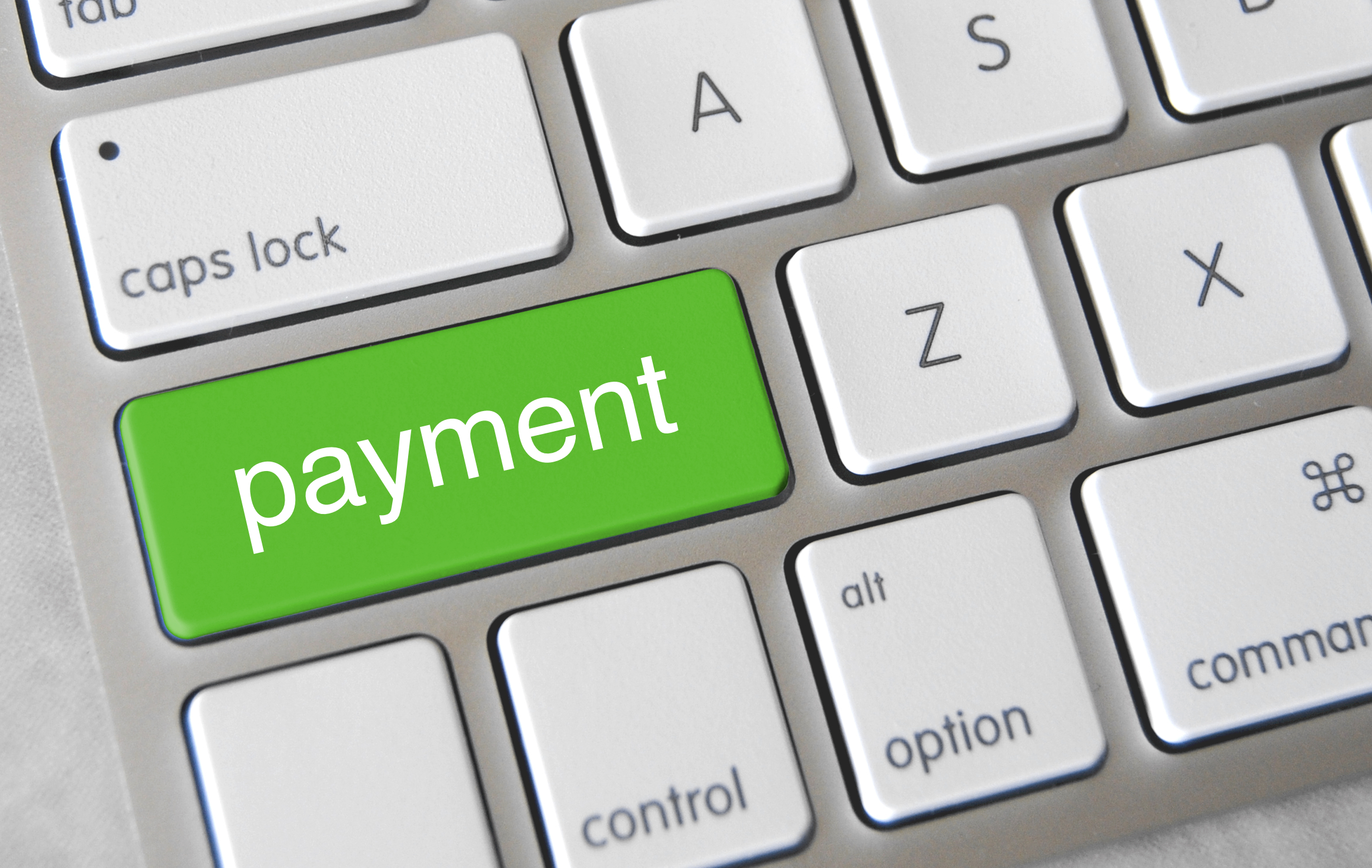
December 17th, 2015 by Elma Jane
Mobile Payments – It is bound to see more actions with tech giants Apple, Google and Samsung in mobile payment trends. We will also see new technologies like smartwatches, bracelets and rings that will give us the ability to provide payment options.
NFC – Near Field Communication, another familiar face among the payment trends. NFC, however, goes way beyond making payments using smartphones. These speed up POS payment processing quickly and easily without requiring a PIN or signature. While there are other POS payment methods, such as QR codes, NFC will come out on top. Merchants should ensure they have an overview of the current Point-of-Sale options and should, if needed, upgrade to the latest technology.
Security: Tokenization and biometric authentication will have a strong influence on the payment industry.
Tokenization – when applied to data security, is an extremely interesting method of securing credit card data. As the credit card numbers are substituted by tokens that has no value, then no harm can be done if tokens are stolen, which makes tokenization a secure process.
There are several new inventions when it comes to payment processing authentication such as password, PIN, and fingerprint methods. But they are weak so two-factor authentication is increasingly used to improve security.
Biometrics Authentication – like finger print scan, facial recognition, voice recognition, and pulse recognition are set to become increasingly significant. This will increase both security and convenience.
International E-Commerce – It’s important that merchants offer shoppers their preferred local payment method. Merchants who are looking for e-commerce success will need to create an international strategy. Merchants should also consider checking with their payment service providers. Providers know their way around to alternative payment methods.
Cash on the Retreat – Cashless Society? Some countries in Europe are certainly cutting down on the usage of cash. In Sweden, it is now almost impossible to use cash to pay for bus tickets. Acceptable payment methods include customer cards, credit cards, and payments via smartphone apps. Traditional cash-based bakeries no longer exist and instead, now display signs requesting that customers use cashless payment methods for even the smallest amounts. The situation in Denmark is similar; the government is currently debating whether or not to release smaller retailers from the obligation of having to accept cash as a payment method. Cash is on the retreat, and alternative payment methods are advancing. However, cash is still on the list.
Real-Time Payments (Instant Payments) – The European Central Bank (ECB) will bring instant payments strongly in the near future. Instant or real-time payments are a trend which will be with us for a long time to come.
Regulatory Changes – The first Payment Services Directive (PSD) from 2007 is still currently implemented domestically. After a tough two-year negotiation period, the EU has now, finally, agreed on a second payment services directive (PSD2). The European Banking Authority (EBA) is set to develop more detailed guidelines and regulatory standards for various industries. Payment industries should begin preparing themselves now for implementation, doing this will allow them to be ready for the appropriate steps necessary in 2016/2017.
Posted in Best Practices for Merchants, e-commerce & m-commerce, Near Field Communication, Point of Sale, Travel Agency Agents Tagged with: Apple, biometric, credit card, data security, e-commerce, google, merchants, Mobile Payments, Near Field Communication, nfc, payment industry, payment methods, payment options, payment processing, payment service providers, payment services, payment trends, payments, PIN, point of sale, POS, qr codes, real-time payments, Samsung, tokenization

November 12th, 2015 by Elma Jane
The United States will leap-frog over chip-and-signature EMV cards quickly and move into biometrics and other security measures, a recent panel discussion on payment technology has heard.
Biometrics is going to play a bigger role in payments going forward because it can be more convenient and it can be a stronger form of verification.
Biometric technology has been a major topic in the payment industry. In another panel held during the recently concluded Money 20/20, experts discussed the role that it will play in the future of the payment industry.
The panel also talked about various biometric technologies including voice, face, iris and fingerprint recognition, which are paving way for new applications in the financial services and payments sectors.
Posted in Best Practices for Merchants Tagged with: biometrics, EMV, financial services, payment industry, payment technology, payments, payments sectors
With the EMV migration just a few months away, Visa is stepping up its merchant education efforts, by launching an online portal for merchants featuring a background on chip cards, demonstrations on proper usage, and tips for implementation.
Visa also kicked off its 20-City Small Business Chip Education Tour expounding on the benefits and necessity of chip cards to local small businesses.
Visa is bringing payment industry experts to connect directly with merchants to answer their questions on the transition across the United States.
Merchant education will be a herculean task, but payments industry stakeholders should make every effort to make sure chip cards are adopted and used effectively by both merchants and consumers.
Posted in Best Practices for Merchants, Credit Card Security, EMV EuroPay MasterCard Visa, Visa MasterCard American Express Tagged with: cards, chip, chip cards, consumers, EMV, EMV migration, Merchant's, payment, payment industry, visa
August 4th, 2014 by Elma Jane
Run through a non-profit organisation, Stellar is a decentralized protocol for sending and receiving money in any pair of currencies, be they dollar, yen or bitcoin. The system works through the concept of gateways that let people get in and out of the network. Users hold a balance with a gateway, which is any network participant that they trust to accept a deposit in exchange for credit on the network. To cash out, a user invokes the promise represented by a gateway’s credits, returning them in exchange for the corresponding currency.
Like Ripple, Stellar comes with its own built-in digital currency, which will be given away for free to people who sign up via Facebook, to nonprofits and to current bitcoin and Ripple holders. Initially there will be 100 billion ‘stellars’ (five per cent of which will be kept back to fund the nonprofit) with the supply increasing at one per cent a year. Although stellars will have a market-determined value, their main purpose will be to provide a conversion path between other currencies. This means that when two parties exchange money through the distributed exchange, stellars sit in the middle. Example, a user might submit a transaction which converts EUR credits to stellar and then converts those stellar to AUD credits. Ultimately, the user will have sent EUR, the recipient will have received AUD, and two exchange orders will have been fulfilled.
Developers are being invited to jump in and work with the open-source code and build applications on top of Stellar. The project has secured the backing of payment industry darling Stripe, which has handed over $3 million in exchange for two per cent of stellars. Stellar is highly experimental, but it’s important to invest effort in basic infrastructure when the opportunity arises. Stellar could become a much better substrate for a lot of the world’s financial systems.
Posted in Internet Payment Gateway Tagged with: AUD credits, bitcoin, code, credit, credits, currencies, deposit, digital currency, EUR credits, Facebook, gateways, network, payment industry, transaction
May 15th, 2014 by Elma Jane
Selling merchant accounts can be a very profitable venture. It’s not an easy task by any means. It takes hours of work, a strong knowledge of the payment processing industry, dedication and the ability to be told NO many times and still keeping at it. It is often first done successfully as a part time job, because it takes time to build up a residual stream large enough to live off of.
More that 50% of all people that start out to sell merchant accounts never make it and maybe 10% are profitable enough to stick with it. Once the person has found the right company like National Transaction to work with and the ability to sell merchant accounts, they can make a very good living from it.
Statistically, an average merchant account will give a sales agent about $30/month to $11,000/month in residual income. Sandler one of our Sales Rep. who’s into insurance company, had a fall out with his brother came in the office did some orientation and had all the support and tools that he needs, did some phone calls and in a month landed a good deal!!! 11,000/monthly residual for Sandler.
If a sales agent can sign 10 accounts per month, they will be making $3600 per month at the end of the first year or $36,000 per year. At the end of the second year $72,000 per year and at the end of the third year $108,000 per year which is a very decent salary. (Take note that the above average statistics may vary). It really depends on what type or existing portfolio a Sales Rep have or the net volume of the merchant accounts they closed in. As long as the agent keeps signing accounts their income will keep growing. But 10 accounts per month is not an easy task especially for someone new to the merchant services industry. Also, overtime attrition shows up and the average number of accounts a person can setup goes down. But with the help of National Transaction’s Support Sales Team, tools and leads you can make it.
With National Transaction, there’s a lot of Sales Representatives from different walks of life who became successful in this field. From a couple who teamed up and build their own portfolio, to a plain housewife, a teacher, ordinary people who doesn’t know anything about merchant accounts selling or not really into sales marketing, but made it big.
Sales Marketing is not for everybody, but if the company like NTC is giving you all the tools and the support that you need to make it, like orientation, classroom training twice a week, even helping you out close a deal through our Sales Support Team then that’s Awesome!
National Transaction give upfront commissions (NTC pay within a couple of business days), not only that, NTC do High Risk credit card processing services, not all merchant service provider does the same thing. National Transaction provides you prequalified leads and appointment set up, you can also call our 24/7 customer service if you need any help. You do not have to purchase a unit or invest in provided leads or anything because NTC wants all their Sales Representative to succeed.
Also in this field you can work from home or be at the office at your own flexible time. As long as you have set your own quota for the day. If you want to be a successful Sales Representative and earn 60,000 or more monthly residual then sign up with National Transaction and make that dream of yours come true, just like our existing Sales Representatives.
Posted in nationaltransaction.com Tagged with: customer service, insurance, insurance company, merchant, merchant accounts, National Transaction, payment industry, payment processing industry, prequalified, sales, Sales Marketing, Sales Representatives





